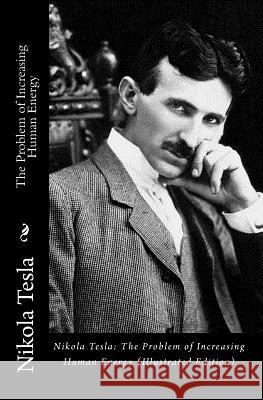Nikola Tesla: The Problem of Increasing Human Energy (Illustrated Edition) » książka
Nikola Tesla: The Problem of Increasing Human Energy (Illustrated Edition)
ISBN-13: 9781452883816 / Angielski / Miękka / 2010 / 84 str.
Part philosophical ponderings on humanity's relationship to the universe, part scientific extrapolation on what technological advancement might bring to that understanding, "The Problem of Increasing Human Energy" is yet another example of the genius of Serbian inventor Nikola Tesla, the revolutionary scientist who forever changed the scientific fields of electricity and magnetism. From the possibilities presented by robotics to the "civilizing potency of aluminum," from a "self-acting engine" to one of the first proposals to use solar power to run industrial civilization, and much more, this is a wide-ranging but illuminating look into the thoughts of an unsung hero of scientific philosophy. As an inventor, mechanical engineer, and electrical engineer, Nikola Tesla was one of the most important contributors to the birth of commercial electricity, and is best known for his many revolutionary developments in the field of electromagnetism in the late 19th and early 20th centuries. Nikola Tesla's patents and theoretical work formed the basis of modern alternating current (AC) electric power systems, including the polyphase system of electrical distribution and the AC motor, with which he helped usher in the Second Industrial Revolution. Born an ethnic Serb in the village of Smiljan, Croatian Military Frontier in Austrian Empire (today's Croatia), Nikola Tesla was a subject of the Austrian Empire by birth and later became an American citizen. After his demonstration of wireless communication through radio in 1894 and after being the victor in the "War of Currents," Nikola Tesla was widely respected as one of the greatest electrical engineers who worked in America.
Zawartość książki może nie spełniać oczekiwań – reklamacje nie obejmują treści, która mogła nie być redakcyjnie ani merytorycznie opracowana.











